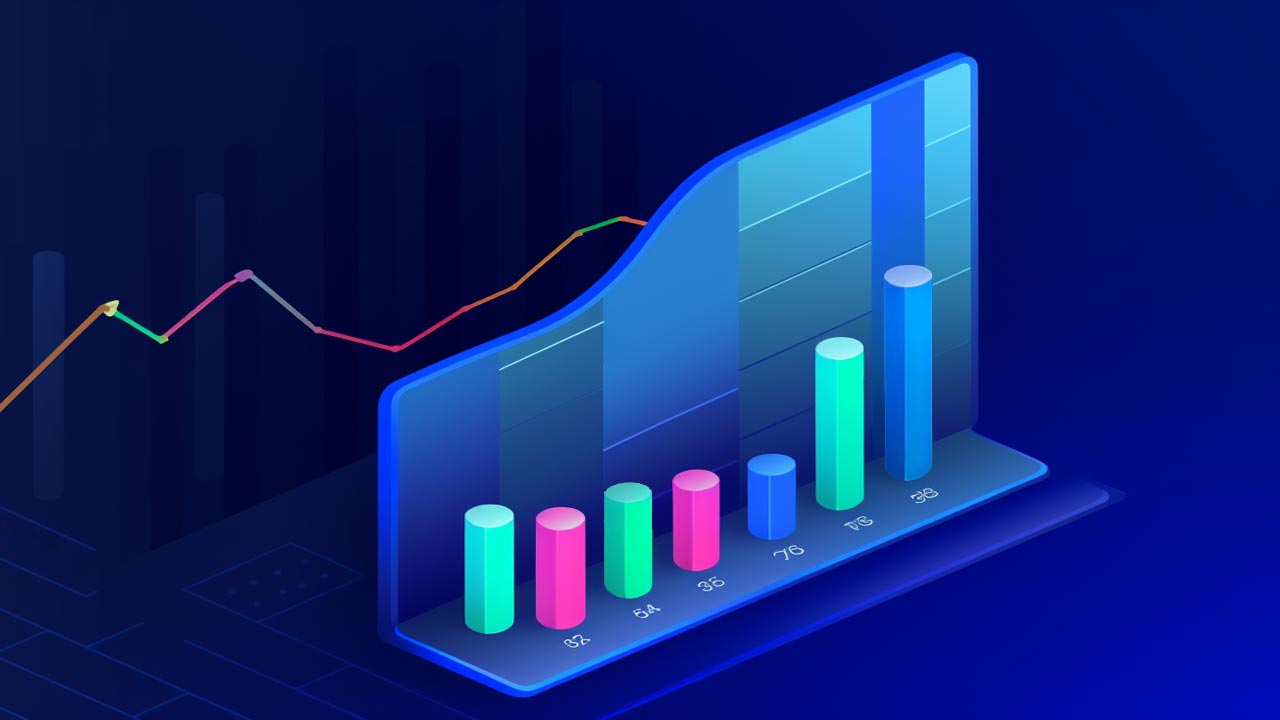In this digital age, businesses of all sizes are competing for the attention of consumers. Small businesses, in particular, face unique challenges in making their presence felt amidst the crowd of larger, more established companies. This article serves as a comprehensive guide to the top 10 digital marketing strategies that are tailor-made for small businesses, aimed at helping them maximize their return on investment (ROI) and increase their online visibility.
As a small business owner or marketer, it is crucial to understand that digital marketing is not just about generating leads or sales, but also about creating a long-lasting impression on the target audience. By investing in the right strategies and channels, you can turn your marketing budget into a profit-generating machine that fuels your business growth.
In this article, you will learn about the most effective digital marketing techniques specifically designed for small businesses, including:
- Setting SMART goals
- Creating high-quality content
- Utilizing social media platforms
- Engaging in email marketing
- Investing in search engine optimization (SEO)
- Leveraging pay-per-click (PPC) advertising
- Exploring influencer marketing
- Utilizing video marketing
- Building and optimizing your website
- Monitoring and analyzing your performance
By the end of this article, you will have a deeper understanding of each of these strategies, how to apply them to your business, and their potential impact on your ROI. Armed with this knowledge, you can make informed decisions that will help your small business thrive in today’s competitive digital landscape.
Table of Contents
- Setting SMART Goals
- Creating High-Quality Content
- Utilizing Social Media Platforms
- Engaging in Email Marketing
- Investing in Search Engine Optimization (SEO)
- Leveraging Pay-Per-Click (PPC) Advertising
- Exploring Influencer Marketing
- Utilizing Video Marketing
- Building and Optimizing Your Website
- Monitoring and Analyzing Your Performance
Setting SMART Goals
Before diving into digital marketing strategies, it’s crucial to establish clear goals that guide your efforts. SMART goals are Specific, Measurable, Achievable, Relevant, and Time-bound, and they provide a framework to ensure your marketing objectives are clear and attainable.
- Specific: Clearly define what you want to achieve with your digital marketing efforts. For example, instead of saying you want to increase sales, specify that you want to increase sales by 20% within the next six months.
- Measurable: Ensure that your goals can be tracked and measured. Use metrics like website traffic, conversion rates, and social media engagement to quantify your progress.
- Achievable: Set realistic goals based on your resources, budget, and current capabilities. Overly ambitious goals can lead to frustration and burnout.
- Relevant: Your goals should align with your overall business objectives and be relevant to your industry and target audience.
- Time-bound: Set a deadline for achieving your goals to create a sense of urgency and keep your team focused.
Creating High-Quality Content
Content is king when it comes to digital marketing. Creating high-quality, engaging content is essential for attracting and retaining your target audience, establishing credibility, and improving your search engine rankings.
- Blog posts: Regularly publish informative and engaging blog posts that address your audience’s pain points and provide valuable insights. This can help establish your business as an industry expert and drive organic traffic to your website.
- Infographics: Visual content like infographics can simplify complex concepts and make them more accessible to your audience. They are also highly shareable, which can increase your brand’s visibility on social media.
- Ebooks and whitepapers: Offer in-depth guides, ebooks, or whitepapers as lead magnets to capture email addresses and build your email list.
- Case studies: Showcase your success stories through case studies, which demonstrate your expertise and the value your business provides to clients.
Utilizing Social Media Platforms
Social media is a powerful tool for small businesses to connect with their target audience, increase brand awareness, and drive website traffic. Focus on the platforms that are most relevant to your target audience and industry.
- Facebook: With over 2.8 billion monthly active users, Facebook is an essential platform for businesses to reach a broad audience. Share engaging content, participate in relevant groups, and use Facebook Ads to promote your products or services.
- Instagram: A highly visual platform, Instagram is ideal for businesses with eye-catching products or services. Utilize hashtags to increase your reach and engage with your audience through Instagram Stories and IGTV.
- LinkedIn: A professional networking platform, LinkedIn is perfect for B2B companies to connect with industry peers, share thought leadership content, and generate leads.
- Twitter: Use Twitter to share news, engage with your audience, and participate in trending conversations. Employ hashtags strategically and consider using Twitter Ads to boost your reach.
Engaging in Email Marketing
Email marketing remains one of the most effective digital marketing strategies for small businesses, offering a high ROI and a direct line of communication with your audience.
- Build your list: Use lead magnets, like ebooks or exclusive discounts, to encourage visitors to subscribe to your email list.
- Segment your audience: Segment your subscribers based on factors like demographics, purchase history, or engagement to deliver personalized content and offers.
- Craft compelling subject lines: Create attention-grabbing subject lines to increase open rates and encourage recipients to engage with your content.
- Design responsive emails: Ensure your emails are mobile-friendly and visually appealing to maintain a professional image and enhance readability.
- Measure and analyze: Track key email marketing metrics, such as open rates, click-through rates, and conversion rates, to identify areas for improvement and optimize your campaigns.
Investing in Search Engine Optimization (SEO)
SEO is the process of optimizing your website and content to improve your search engine rankings, making it easier for potential customers to find your business online.
- Conduct keyword research: Identify relevant keywords and phrases that your target audience is using to search for products or services similar to yours.
- Optimize on-page SEO: Incorporate target keywords into your website’s title tags, meta descriptions, headers, and content to improve your search engine visibility.
- Improve site speed: Optimize your website for speed by compressing images, reducing HTTP requests, and using a content delivery network (CDN) to decrease page load times.
- Earn high-quality backlinks: Reach out to industry influencers, guest post on reputable websites, and create share-worthy content to earn backlinks that improve your domain authority and search engine rankings.
Leveraging Pay-Per-Click (PPC) Advertising
PPC advertising allows you to bid for ad placement in search engine results or on relevant websites, paying only when users click on your ads. This can be an effective way to drive targeted traffic to your website and increase conversions.
- Choose the right platform: Google Ads, Facebook Ads, and Bing Ads are popular PPC platforms that cater to different types of businesses and objectives.
- Set a budget: Determine your daily or monthly budget based on your overall marketing budget and ROI goals.
- Conduct keyword research: Identify high-intent keywords that are relevant to your business and have a reasonable cost-per-click (CPC).
- Create compelling ad copy: Write persuasive ad copy that highlights your unique selling points and includes a strong call-to-action (CTA) to encourage users to click on your ad.
Exploring Influencer Marketing
Influencer marketing involves partnering with individuals who have a strong social media presence and influence within your industry. These partnerships can help increase your brand visibility, credibility, and reach.
- Identify the right influencers: Look for influencers with a loyal following that matches your target audience and brand values.
- Set clear goals: Determine the objectives of your influencer marketing campaign, such as increasing brand awareness, generating leads, or driving sales.
- Develop a mutually beneficial partnership: Offer influencers compensation, free products, or exclusive discounts in exchange for their promotion of your business.
- Track and measure results: Monitor the performance of your influencer marketing campaigns to determine their effectiveness and make adjustments as needed.
Utilizing Video Marketing
Video marketing is a powerful tool for engaging your audience, showcasing your products or services, and improving your search engine rankings.
- Create informative and engaging videos: Develop videos that address your audience’s needs, demonstrate your expertise, or showcase your products and services.
- Optimize for SEO: Include relevant keywords in your video titles, descriptions, and tags to improve search engine visibility.
- Leverage multiple platforms: Share your videos on social media, embed them in blog posts, and upload them to platforms like YouTube and Vimeo to increase your reach.
- Use video analytics: Track video performance metrics, such as views, engagement, and conversions, to identify successful content and optimize your video marketing strategy.
Building and Optimizing Your Website
Your website serves as the digital face of your business and the foundation of your online presence. A well-designed and optimized website can significantly improve your online visibility and conversion rates.
- Choose a user-friendly design: Opt for a clean and modern design that is easy to navigate, mobile-responsive, and visually appealing.
- Optimize for conversions: Place CTAs strategically throughout your website to encourage visitors to take action, such as signing up for your newsletter, requesting a quote, or making a purchase.
- Focus on user experience: Make sure your website loads quickly, is easy to navigate, and provides relevant information to keep visitors engaged and encourage them to return.
- Monitor website performance: Regularly review website analytics to identify areas for improvement, such as reducing bounce rates, increasing average session duration, or improving conversion rates.
Monitoring and Analyzing Your Performance
Regularly monitoring and analyzing your digital marketing performance is essential to ensure you are on track to achieve your goals and to identify areas for improvement.
- Use analytics tools: Leverage tools like Google Analytics, Facebook Insights, or email marketing analytics to track key performance indicators (KPIs) and measure your success.
- Conduct A/B testing: Test different elements of your marketing campaigns, such as email subject lines, ad copy, or landing page designs, to identify which versions yield the best results.
- Adjust your strategies: Analyze your data to determine which strategies are working well and which need improvement. Make adjustments as needed to optimize your campaigns and maximize ROI.
- Regularly review your goals: Revisit your SMART goals periodically to ensure they remain relevant and achievable, and update them as needed to reflect changes in your business or industry.
By implementing these top 10 digital marketing strategies tailored for small businesses, you can effectively increase your online visibility, drive targeted traffic, and maximize your return on investment. Remember that digital marketing is an ongoing process, and continuous learning, adaptation, and optimization are crucial for success in today’s competitive digital landscape.
Final Thoughts
The most important takeaway from this article is that digital marketing is essential for small businesses, and it is possible to maximize ROI by employing the right strategies. From setting SMART goals to leveraging various digital channels, small businesses can compete with larger counterparts and establish a strong online presence. Remember that every business is different, and it’s crucial to evaluate and adapt your digital marketing strategies based on your unique objectives, target audience, and resources.
Sources
- 5 Essential Digital Marketing Strategies for Small Businesses
- How to Create a Comprehensive Digital Marketing Strategy
- The Ultimate Guide to Digital Marketing for Small Businesses
- 50 Unbeatable Ecommerce Marketing Tips
- How to Build Your Small Business’s Digital Marketing Plan








